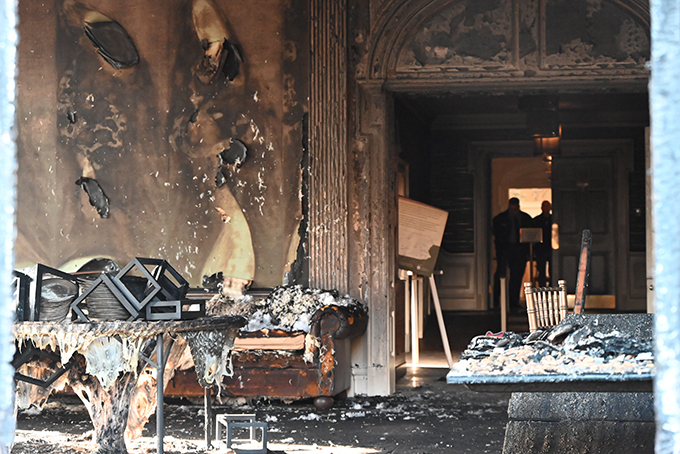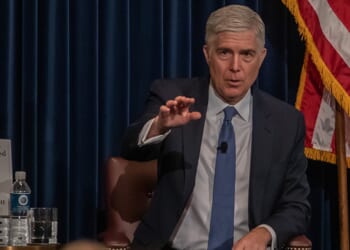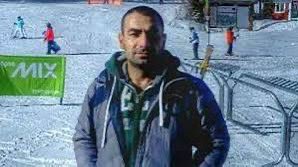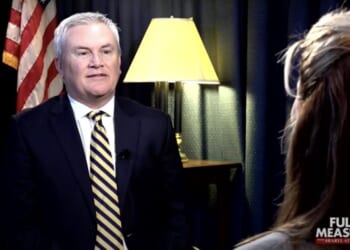Earlier this month, on the first night of the Jewish holiday of Passover, 38-year-old Cody Balmer firebombed the residence of Pennsylvania governor Josh Shapiro. A search warrant indicates that the attempted murder was driven by Balmer’s fury over what the Democratic state chief executive—America’s most identifiably Jewish governor—“wants to do to the Palestinian people.”
Balmer is not merely an anti-Semite and would-be domestic terrorist. He was out on bail after assaulting his estranged wife and stomping on his ten-year-old son’s broken leg. He is also mentally ill and was off his meds: his mother tried to commit him three days before the arson attack, but police told her that, unless he threatened himself or others, he didn’t meet the threshold for involuntary commitment.
Finally, a reason to check your email.
Sign up for our free newsletter today.
This attack represents, then, a failure of the systems meant to keep people safe. The question now is whether Governor Shapiro will seize the moment to fix them. He could buck his party’s pro-terrorism wing and back popular, common-sense fixes to bail, commitment, and domestic-terrorism laws. Will the likely 2028 presidential contender step up?
The question has national relevance. Across the country, public disorder is rising as policymakers retreat from tools like institutionalization and pretrial detention. “Why was he free at all?” is a question asked not just about Balmer but about repeat offenders across the country who are out on bail or seriously mentally ill.
The public wants to make it easier to detain such individuals. In New York, where Tulchin Research, Bernie Sanders’s pollster, has conducted public opinion research, nearly 90 percent of residents back reforms to remove dangerously ill individuals from public spaces. A separate Manhattan Institute survey finds that majorities in both parties favor tougher bail laws.
There’s also growing alarm over a surge in political violence. Balmer’s attack is just the latest in a string of incidents: the murder of UnitedHealthcare CEO Brian Thompson by Luigi Mangione; the firebombing of multiple Tesla dealerships; and the New Year’s Day attacks in New Orleans and Las Vegas. In many cases, these incidents have gone curiously unremarked in the media, which seems eager to downplay the Left’s tendency to support violence.
Balmer’s attack, moreover, was an explicit response to Shapiro’s Zionism—and, one suspects, to his Judaism more generally. And it occurred against the backdrop of a broader campaign of civil intimidation targeting Jews and pro-Israel Americans. Across the country (and in Shapiro’s backyard), radicals have escalated from protected speech to coercion: blocking roads, occupying campus buildings, harassing Jewish students, and lionizing terrorist groups in the public square. These aren’t isolated protests—they’re deliberate efforts to make life unlivable for political opponents and to sidestep the democratic process.
Governor Shapiro, of all people, should feel the urgency to act. A man tried to murder him and his family. Yet, his record doesn’t inspire confidence. On issue after issue—from school choice to energy policy—Shapiro has talked tough, only to fold when pressured by the activists who rule Democratic politics.
They will press him on these issues, too. The “defund the police” crowd still has influence over bail policy. Progressive purists oppose involuntary commitment. And the Democratic Party has proved unable or unwilling to draw red lines around civil terrorism and anti-Semitism, especially when it comes from its left flank.
Shapiro has already started hedging on the incident. In a press conference last week, he condemned violence across the political spectrum and said nothing “would deter me from proudly and openly practicing my faith.” But he stopped short of talking about motive, saying, “I know there are people out there who want to adopt their own political viewpoints, or their own worldview as to what happened and why. I choose not to participate in that.”

There’s a pattern here. When asked by Bill Maher whether his being Jewish factored into Kamala Harris’s decision not to choose him as running mate in 2024, Shapiro dodged. “I’m damn proud to be Jewish,” he said, before pivoting to platitudes about how Shabbat dinner is just like Christmas Eve and Iftar. It was a moment that called for clarity; he chose comfort instead.
If Shapiro fails to confront the problems the Balmer attack embodies, it will be not only a failure but also a missed opportunity. By speaking forthrightly and demanding policy change, the governor could back popular reforms, burnish his moderate credentials, marginalize the radical wing of the party that kept him off the ticket, and consolidate his position as a potential future leader.
What, specifically, should he do? Make it easier to commit the dangerously mentally ill before they strike; back the bipartisan cash-bail bill sitting in the state legislature; and call for aggressive prosecution of anti-Semitic (and other) civil terrorists.
First, Pennsylvania’s involuntary commitment standard—that the individual must pose a clear and present danger to himself or others—needs revision. Involuntary commitment is a serious deprivation of rights and should not be undertaken lightly. But Balmer had recently committed an act of violence, was known to a trustworthy individual (his mother) to be unmedicated and unstable, and plainly intended to commit more violent acts. Police should not have had to reject her request to have him committed.
Second, tighten bail laws. Earlier this year, the Pennsylvania Senate passed a bipartisan bill to ban cashless bail for defendants deemed a threat to public safety. Every Republican and several Democrats supported it. The bill awaits action in the state House. Shapiro’s endorsement could push it across the finish line.
Third, pursue the aggressive prosecution of individuals who engage in what our colleague Tal Fortgang has labeled “civil terrorism.” Those “protesters” who block bridges or thoroughfares, vandalize property, or otherwise engage in publicly disorderly action masquerading as “speech” should be prosecuted to the fullest extent of the law. And the governor should seek clarification from the state legislature that committing such offenses to target Jews violates Pennsylvania’s prohibition on ethnic intimidation, yielding an enhanced sentence.
These ideas are popular, pragmatic, and morally urgent. If he took action on them, Shapiro could turn this moment of tragedy into real, positive change. Will he lead—or fold again?
Photos by Kyle Mazza/Anadolu via Getty Images
Source link














